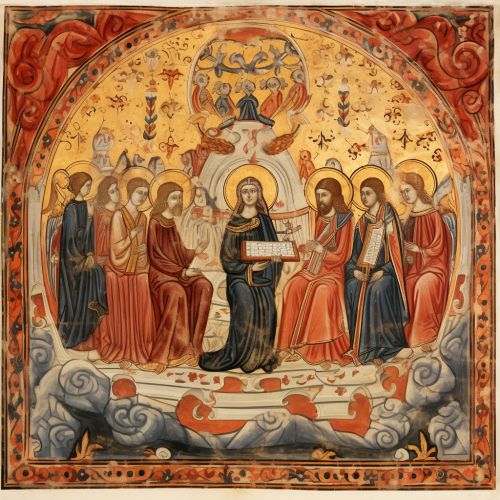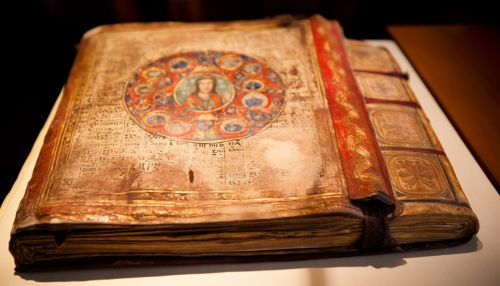New Testament
Origins and Composition
The New Testament (NT) is the second part of the Christian biblical canon, following the Old Testament. The NT discusses the teachings and person of Jesus, as well as events in first-century Christianity. The original texts were written in first-century Koine Greek language. The New Testament is divided into five sections: the Gospels (Matthew, Mark, Luke, and John), the Acts of the Apostles, the Pauline Epistles, the General Epistles, and the Book of Revelation.
The Gospels
The Gospels are narratives about the life, death, and resurrection of Jesus. The term "gospel" derives from the Old English 'god-spell' (good news), translating the Greek word εὐαγγέλιον (euangelion). The authors of the gospels are all traditionally ascribed to be eyewitnesses to the events, although modern scholarship has questioned this.


The Gospel of Matthew
The Gospel of Matthew emphasizes that Jesus is the fulfillment of God's promises to the Jewish people. It begins with the genealogy of Jesus, tracing his lineage back to Abraham, the patriarch of the Israelites. Matthew's Gospel is known for the Sermon on the Mount, the Beatitudes, and the Lord's Prayer.
The Gospel of Mark
The Gospel of Mark is the shortest of the four gospels and is considered by most scholars to be the earliest. Mark emphasizes Jesus' rejection by humanity while being God's triumphant envoy.
The Gospel of Luke
The Gospel of Luke is the longest of the four gospels and is the only one that has a sequel, the Acts of the Apostles. Luke's Gospel is known for its parables, such as the Good Samaritan and the Prodigal Son.
The Gospel of John
The Gospel of John is unique among the four gospels in its style and content. It begins with a philosophical prologue and includes long discourses of Jesus, such as the Farewell Discourse.
The Acts of the Apostles
The Acts of the Apostles is a narrative of the apostles' ministry and activity after Christ's death and resurrection, from Jerusalem to Rome. It provides an important bridge for understanding the writings of the Apostle Paul.
The Pauline Epistles
The Pauline Epistles are letters written by the Apostle Paul to various Christian communities. They provide insight into the beliefs and controversies of early Christianity and as part of the canon of the New Testament they are foundational texts of Christian theology and ethics.
The General Epistles
The General Epistles, also known as the Catholic Epistles, are letters written to the Christian Church in general, rather than to specific churches. They include James, First Peter, Second Peter, First John, Second John, Third John, and Jude.
The Book of Revelation
The Book of Revelation, also known as the Apocalypse, is the final book of the New Testament. It presents a vision of the end of the world, the final judgement, and the ultimate triumph of good over evil.
